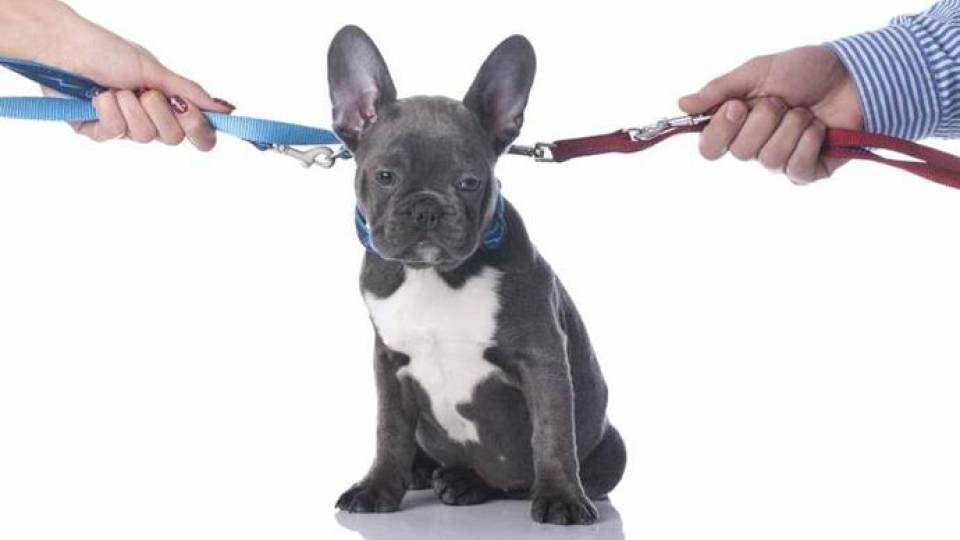
Great news from the 130th Legislature. MFOA’s L.D. 535, “An Act to Provide for the Well-Being of Companion Animals Upon the Dissolution of Marriage” passed the Maine House and Senate in 2021 and has become Maine law! Only four other states have passed simlair pet custody legislation.
In Maine, marriage dissolution is based on traditional property classifications, which means that existing state law provides no special provisions for pets. During divorce proceedings, companion animals are currently considered in the same light as inanimate objects, such as a dining room set or lawnmower.
Maine state law provides no special provisions for pets in which marriage dissolution is based on traditional property classifications. This new law will provide unique authority to assist judges in determining a companion animal’s interests when considering its future care and custody. This legislation provides reasonable and helpful criteria when evaluating the companion animal’s well-being, similar to standards applied in child-custody cases. This humane approach protects both animals and their humans, especially in situations involving domestic violence.

STATE OF MAINE
_____
IN THE YEAR OF OUR LORD
TWO THOUSAND TWENTY-ONE
_____
S.P. 222 - L.D. 535
“An Act To Provide for the Well-being of Companion Animals upon the Dissolution of Marriages”
Be it enacted by the People of the State of Maine as follows:
Sec.1. 19-A MRSA §953, sub-§10 is enacted to read:
10. Companion animals. In the disposition of property pursuant to subsection 1, the court, with respect to a companion animal, shall award ownership of the companion animal to only one party after considering all relevant factors, including, but not limited to:
A. The well-being and basic daily needs of the companion animal;
B. The amount of time each party has spent with the companion animal during the marriage tending to the companion animal’s nutritional, grooming, physical and medical needs;
C. The ability of a party to continue to own, support and provide adequate care for the companion animal;
D. The emotional attachment of a party to the companion animal;
E. The emotional attachment of any child in the household to the companion animal and the benefit to the child of the companion animal’s remaining in the primary residence of the child;
F. Any domestic violence between the parties or in the household of the parties; and
G. Any history of animal abuse or other unsafe conditions for the companion animal.
For the purposes of this subsection, “companion animal” means an animal kept primarily for companionship rather than as a working animal, service animal or farm animal kept for profit.
LR1563, item 3 - 130th Maine Legislature, page 2
———-
Special thanks to Maine Animal Coalition for partnering with MFOA on the passage of this important bill.
Much gratitude to L.D. 535’s lead sponsor, Senator Benjamin CHIPMAN of Portland and co-sponsors: Senator Donna BAILEY of York, Senator Richard BENNETT of Oxford, Senator Ned CLAXTON of Androscoggin, Representative Kristen CLOUTIER of Lewiston, Representative Janice DODGE of Belfast, Representative Thom HARNETT of Gardiner, Representative David McCREA of Fort Fairfield, for taking a stand for Maine’s animals.

LD 535 “An Act to Provide for the Well-being of Companion Animals in the Dissolution of Marriages”
BILL FACT SHEET
- As time has evolved society has become increasingly uncomfortable with the notion that our dogs and cats are legally just property like a chair or lawnmower. The laws have not kept up. According to a recent survey by The Humane Society of the United States, only one percent of Americans consider their pets mere property. Today 80% of owners view their pets as family members according to a survey by the American Veterinary Medical Association (AVMA).
- Current Maine state law provides no special provisions for pets in which marriage dissolution is based on traditional property classifications, reducing them to inanimate objects during divorce proceedings. This bill will have unique authority to assist judges in determining the companion animals interests when considering its future care and custody.
- Divorce attorneys say these issues are becoming more common as state courts confront divorce laws that fail to recognize that in more and more homes, not every crucial bond is between humans, and as sentient beings, pets’ well-being should be considered.
- Opponents may assert current laws are sufficient to address these matters. However, current statutes provide no specific direction to judges regarding the factors to consider when making decisions with respect to ownership of companion animals. This proposed legislation provides reasonable and helpful criteria when evaluating the companion animal’s well-being.
- Without a ‘well-being’ analysis it can be too arbitrary and discretionary. Factors traditionally associated with child custody were helpful here. Without best interest guidelines it potentially leads to very inconsistent case law.
- Alaska, Illinois, California and New Hampshire have already passed laws allowing judges to decide the ownership of a dog by taking into consideration “the well-being of the companion animal” or the “care of the pet animal.” Other states, besides Maine, are considering or pursuing similar legislation.
- In an American Bar Journal article former WGAN radio host, Ken Altshuler, who served as president of the American Academy of Matrimonial Lawyers, stated the number of pet-custody matters has grown noticeably over the past decade. “Judges are viewing pets more akin to children than dining room sets, and recognizing that people have an emotional attachment to their animals.”, Pet Custody Cases Proliferate, Divorce Lawyers Say, Martha Neil, ABA, 2/29/12
- The bill provides factors for judges to consider, including time spent in the care of the animal, basic and daily needs, medical care, social interaction, emotional attachment of family members, financial support, history of domestic or animal abuse, and whatever other factors the judge deems necessary to determine the interests of the companion animal.
- An individual may have no interest in retaining possession of the pet, but advocates for ownership just to exert more power over, and to abuse, that spouse. Read compelling written public hearing testimony of such personal experience of Nicole Goodstein and 35-year divorce lawyer Christina Perkins to further understand the need for such updated legislation.
- The bill is not a radical departure from the current law. Maine’s Title 19-A Domestic Relations already treats animals differently from mere property by allowing judges to include companion animals in domestic-violence protection orders, as do many states.
- This legislation would not change the parties ability to enter into agreements prior to their divorce decree to provide for the custody and care of a pet. In fact it encourages it given the factors the judge will have to consider in a hearing.
- Although this legislation may assist the courts with respect to a variety of pets, nationally 90% of litigated cases involve dogs, with most of the remaining cases involving cats.
- From the before-mentioned national family lawyer, Ken Altshuler on the court’s time: “The argument that allowing judges to consider other factors when determining the disposition of a pet would be further burdensome on the court is spurious. Having the parties outline for the judge their history with a pet would add little time to a trial. I could easily have a client outline for the judge his or her response to the factors in this legislation in less than 15 minutes. That does not appear to me to be an extravagant amount of time for such a significant issue. “



